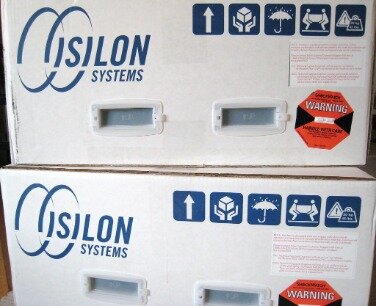Content

Pencil in due dates on a paper, phone, or computer calendar and get on a consistent payment schedule. This article was co-authored by Darron Kendrick, CPA, MA. Darron Kendrick is an Adjunct Professor of Accounting and Law at the University of North Georgia.
- Just remember to keep it simple and don’t overthink the process, and reach out to knowledgeable professionals as the need arises.
- Therefore, be ready to borrow money on short-notice from a convenient and fast source, such as IOU Financial.
- If you don’t keep an eye on your spending, you could be fitted with a sizeable bill that you aren’t prepared for.
- Get flat rate, short-term financing based on the financial health of your business, not your credit score.
- Plus, business bank statements are useful for tracking profitability, reconciling your books, and monitoring spending.
If you have a specific income goal, you’ll definitely want to start tracking your income regularly as well. Money obviously is the lifeblood of any business, which means it’s your job as the all-in-one leader to make sure that blood keeps pumping. A small business CEO has a lot to juggle – not just making sales, figuring out marketing and tackling issues such as manufacturing, but acting as the company’s chief financial officer, too. And while it’s easy to let some to-dos slip, you can’t let things slide when it comes to your small business’ finances.
These semi-deadbeats put a dent in your cash flow, and if the problem gets out of hand, your business could be jeopardized. You can improve your billing strategy by adopting discounts, such 2/10 net 30. This gives your customers a 2% discount if they pay within 10 days. Another strategy is to sell off your problem accounts to a collection agency. You’ll take a small loss, but you’ll free up your time to concentrate on more important tasks. It’s important to schedule time to sit down and go over your business finances regularly. Your income and expenses will fluctuate, so it’s best to stay on top of things by checking in often.
Separate Business, Pleasure And Private Accounts
Canadian store owners only need to start collecting GST/HST when they have revenues of $30,000 or more in a 12-month period. If you want, you can collect GST/HST even if you don’t earn this much in revenue, as you can put it toward input tax credits. Depending on your business model, you may be planning to purchase and import goods from other countries to sell in your store. When importing products, you’ll likely be subject to taxes and duties, which is worth noting if you run a dropshipping business. Learn about importing goods into the US and Canada, and the associated taxes, so you know the rules from the get-go. Before we jump into establishing a bookkeeping system, it’s helpful to understand exactly what bookkeeping is and how it differs from accounting. Bookkeeping is the day-to-day process of recording transactions, categorizing them, and reconciling bank statements.
At least $250,000 in the past 12 months of revenue, e-commerce business, use a 3rd party fulfillment center for storing and shipping inventory, at least one US location. A connection service for all types of businesses — even startups. Get qualified for funding in minutes for up to $500,000 without affecting your credit score.
Managing small business finances also means managing cash flow to ensure your business is operating at a healthy level on a day-to-day basis. If you’re struggling to collect from certain customers or clients, it may be time to get creative with how you bill them. Taxes might be the bane of your existence, but you had better keep current with your tax obligations to avoid disastrous consequences. You will owe income tax, sales tax, maybe even property tax, that must be remitted on time. If you have trouble making quarterly payments, then switch to monthly payments.
What areas of your finances will he or she handle, and what will you keep in house? You’ll want to limit future confusion by discussing each of these issues before you make a selection. To find an accountant for your business, you can ask your attorney, banker, or a fellow business owner for a recommendation, or contact the Society of Certified Public Accountants in your state for a referral. The person you choose should be a certified public accountant (don’t assume every accountant is) and licensed to practice in your state. You can ask if you can call a few clients to check references and make sure you are clear about the individual’s fees for services. Keeping track of your accounting documents above can become overwhelming if you’re trying to manage everything manually. On the other hand, if you’d prefer a business checking account from a more traditional bank, you might consider one of the three checking account options from Chase.
There’s nothing small about small business finances, so don’t try to shoulder the load yourself. Call us 440.892.9088 or contact us online today, and we’ll buy you the time to balance your many responsibilities.
Plus, as we mentioned earlier, the specific tax requirements that apply to your business will depend on your business entity structure as well as other qualifications unique to your operations. It helps you to project where your business is headed, and when you know exactly how your revenue and expenses are stacking up, you can begin to make more informed decisions for your business. Maintaining your financial records also makes tax reporting and payments a lot more manageable. Properly managing business finances is more than just a good idea. In a for-profit venture, keeping a keen eye on your cash flow, expenses, and revenue is an irreplaceable step in maximizing earnings, growing, expanding, and hiring more help. For non-profit businesses, proper oversight of donations, grant dollars, and all other sources of income is necessary in the event of an audit or inquiry.
How Your Business Credit Score Works
Credit unions are invaluable to small-business owners, especially since they are often willing to provide loans at competitive rates. Make it a point to seek out the best one in your locality, and make sure they understand your business needs. Although it’s easy to balk at the expense of working with a bookkeeper, they will be able to help you save money over the long haul.
However, it’s a common misconception that the SBA itself actually loans funds to businesses. The amount you can borrow depends on the price and type of equipment you’re borrowing, and because the equipment itself serves as collateral, you likely won’t be asked to put up additional collateral.
During slower months, or when you come across unplanned expenses, you may need to draw upon your emergency fund. That’s fine, (that’s what it’s there for!) but make sure you’re always replenishing those funds to protect yourself against future unforeseen costs or circumstances. Supply chain disruptions and volatility have impacted retail, restaurants, and healthcare. Closely monitoring demand and working with suppliers to ensure availability can help business owners mitigate risks to product access, and ensure your customer experience continues to be reliable and positive.

Cash comes in from sales, loan proceeds, investments, and the sale of assets, and goes out to pay for operating and direct expenses, principal debt service, and the purchase of assets. The next step to managing your small business finances is to understand the basics of small business accounting. Although this may seem like a daunting task—especially if you’ve never taken an accounting class—there are some basicaccounting termsand documents that aren’t too difficult to learn. Ultimately, you’ll want to choose a business bank account that can not only house your funds but that can also help you manage your business finances on a day-to-day basis.
Basics Of Small Business Accounting: 12 Steps To Get Your Company On Track
In the former, you must charge sales tax based on the state where you run your business. The latter requires sales tax to be applied based on the purchaser’s location. However, when you sell online, customers may be located in different cities, states, provinces, and even countries. Revenues and expenses are recognized at the time they are actually received or paid.
Plus,Freshbooksintegrates with popular apps for CRM, customer service, and more. Thankfully, there are several greataccounting softwareoptions available that will take the guesswork out of your bookkeeping. Using these cloud-based software services, you can have all of your most important accounting documents just a few clicks away, generate them automatically, and handle invoicing and other bookkeeping needs.
If you want to be successful in business, you need to be able to monitor and track your key performance indicators. You need to know the score, and some of the most important elements include cash flow, expenses, revenue, profit and so on. Mixing your personal and business finances will inevitably result in confusion. It might seem convenient to charge everything to a single card, but ultimately this will make tracking your spending far more complicated than it needs to be. Many businesses seek loans to expand and grow, meet obligations, acquire more assets or hire more employees. Currently, U.S. small businesses hold an average of $195,000 in debt. Financial management experts will caution against getting too bogged down in debt too soon, as this could spell disaster in the event of a default.

After you’ve legally registered your business, you’ll need somewhere to stash your business income. Having a separate bank account keeps records distinct and will make life easier come tax time.
One of the most important things you can do is have a clear and defined payment policy in place. Your clients should know what payments are due, when they’re due, how they can be paid, and what happens if payments are late or missed. As many businesses go omnichannel to reach more customers, financial inefficiencies can arise if inventory isn’t being properly tracked across multiple channels. For instance, if a customer doesn’t know that an item they wanted in store can also be purchased online, a sale is lost, one that could’ve helped a business move inventory that might soon be out of season. You also want to select a pay schedule that follows all state guidelines, and gives you and your team the most financial autonomy. An ideal pay schedule coincides with when you have cash coming in and allows you to pay your team as frequent as possible.
So, with all of this being said, you can separate your personal and business finances by opening a business bank account. Choosing the right bank account for your business is a crucial step to effectively managing your business finances. Organize your business finances by using accounting software and hiring a professional. Allow your income to filter through that account and you can pay all your expenses from that account. Each month you’ll receive a statement and it will be easier to keep track of your cash flow.
If you need money from the business, label it appropriately as a draw from the business and transfer the money to your personal bank account first. Even if you’re running your business as a sole proprietorship, you still want to keep your business finances separate from your personal finances. Mixing your assets together can cause problems if you’re audited, or sued by a business creditor. Effective and efficient management of finances is critical to the growth and success of any small business. The easiest way to do this is to hire a dedicated accountant or bookkeeper right away.
There are many helpful small business budget templates out there, available readily online. Are you at the helm of one of the 30.2 million small businesses in the U.S. today? Small business success is grown with a healthy combination of passion, drive, and unrelenting dedication. For many, however, the concept of financial management, budgeting, bookkeeping, and taxes are among the least-enjoyable activities.
For instance, set up a savings account and squirrel away a percentage of each payment as your self-employed tax withholding. A good rule of thumb is to put 25% of your income aside, though more conservative estimates for high earners might be closer to one third. Keep a small business cash reserve to help you manage money when you’re in a pinch. You can start a cash reserve by opening a business savings account. Putting in the time to create and keep up with a small business budget can simplify the way you manage money. Even if you aren’t required to separate business and personal funds, doing so is critical to money management. Plus, business bank statements are useful for tracking profitability, reconciling your books, and monitoring spending.
Adjust supply chain strategies, track existing contracts and orders, and have backup suppliers to prevent disruptions from eating into your projected sales and forecasted revenue. To plan for the future, take a look at your overall business and supply chain plans and consider proactively tracking additional costs related to your business continuity activities. Stay one step ahead of your inventory levels by using inventory management software that automatically connects your in-store and online catalogs.

For American store owners, you’ll need to pay estimated quarterly taxes if you’ll owe more than $1,000 in taxes this year. Canadians have it a little easier; if your net tax owing is more than $3,000, you’ll be required to pay your income tax in installments. Tax obligations vary depending on the legal structure of the business. If you’re self employed , you’ll claim business income on your personal tax return. Corporations, on the other hand, are separate tax entities and are taxed independently from owners.
This demonstrates a cushion so that if you have a slow sales month or an unexpected expense comes up, you’ll still be able to make your loan payment. If you’d like to be more conservative, aim for a loan that leaves you with a DSCR of 1.35 or even 1.5. Maybe you have a network full of acquaintances and contacts willing to contribute to your business venture in smaller amounts. Don’t underestimate the value of a few hundred $50, $20, or even $10 pledges toward your overall fundraising goal. And if your crowdfunding campaign goes viral—catching the attention of folks outside your immediate network—the possibilities grow even further.

